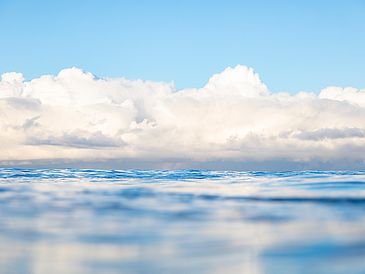In the winter term 2022/23, the artec Sustainability Research Centre and the EnJustNetwork jointly invite you to join them for discussions on the topic of environmental justice in various facets. The events start at 6:15 pm in room GW2 B3009 (Large Study Room).
08.12.2022, 18:15 Uhr, GW2 B3009
The rising politics of sea lebel: Coastal measurement, meaning, and materiality
Dr. Katherine Sammler
Marine Political Ecology Lead, Helmholtz-Institute for Functional Marine Biodiversity Oldenburg
Sea level rise has destructive material impacts on coastal communities and low-lying nations. While it is largely perceived and experienced via these impacts, the level of the sea is less often thought about as a political surface. The boundary where land and sea intersect is determined by the ocean’s height, manifesting materially as a realm of coastal features and produced politically as baselines. Defined through international treaties, baselines are the low-water line upon which national boundaries are traced. Yet, this line between adjoining mediums of land and sea is much more physically blurred and dynamic than represented politically and legally. The difficulties of delimiting a coastline, a phenomenon referred to as the Coastline Paradox, means the measurement of a coastline is dependent on the ruler used, an entanglement of instrument and measurement. As rising sea levels encroach on physical coastlines, they are also impacting legal baselines, shifting national terrestrial and maritime borders inland posing existential dilemmas to island and low-lying nations. This talk considers baselines as a political technology, the calculative apparatus that enacts cuts to refashion lively ocean worlds into divisible spaces and objects. It examines how the concept of sea level was constructed scientifically and enrolled in the legal demarcation of territorial borders based on a land/sea binary that is in direct opposition to many coastal peoples and First Nations, while also being eroded by rising sea levels in a climatically changing world.
Dr. Katherine Sammler is trained as a geographer, with a background in atmospheric science and physics. She is the Focus Group Lead in Marine Political Ecology at the Helmholtz-Institute for Functional Marine Biodiversity (HIFMB) with the Alfred Wegener Institute for Polar and Marine Research (AWI) and University of Oldenburg in Germany. She conducts research at the intersection of science and politics in the realm of oceans, atmospheres, and outer space. In all areas, her work considers the role of knowledge, law, and power in defining global commons, access, and environmental justice. She has recently published on astronomy and space infrastructure in relation to settler colonial observation and occupation as well as the lived physics of Earth’s magnetosphere.
The artec colloquia provide a space to discuss current developments in social-ecological transformation research. Guest researchers are regularly invited to give talks. In addition, artec members present their current research projects and results. The colloquia take place every semester with a different thematic focus. The events are open to the public and are aimed at scientists, students, and interested people from all disciplines. Talks are held in German and English. Please find more info here.

![[Translate to English:] Zur artec Startseite](/fileadmin/user_upload/sites/artec/Bilder/Logo/artecWortmarke200px.gif)
